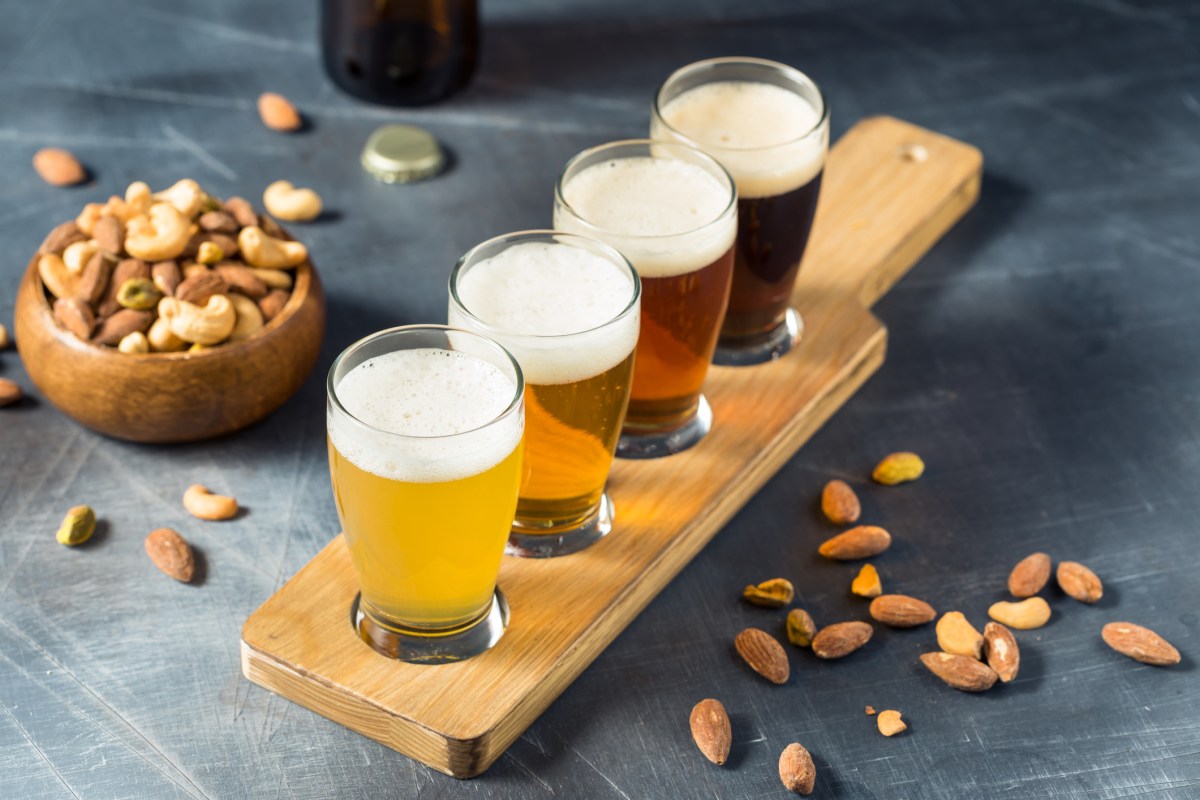Lotte Peplow, the Brewers Association’s Craft Beer Ambassador for Europe, takes a transatlantic dive into new research on consumer drinking habits from the world of American craft beer. On the basis that what happens over there, comes over here, could Australian beer drinkers show the same preferences in the future?
The Brewers Association, the trade association for small and independent American craft brewers, has released the results of its annual Harris Poll survey into the changing preferences of the beer drinker, revealing a number of intriguing insights into today’s competitive American craft beer landscape.
The survey asked respondents about their current beer consumption compared to the previous year and the results demonstrate how demographic and age factors are influencing purchasing decisions.
Everyone is drinking everything
Craft beer drinkers account for 48 per cent of total beverage alcohol drinkers (those drinking several times a year or more often) and eight per cent who drink on a weekly basis, but craft beer consumers are also drinking across a range of other beverage alcohol categories with 50 per cent of survey respondents imbibing in three or more categories weekly.
Wine, spirits, imported beer, flavoured malt beverages, canned cocktails, hard seltzers and cider are all competing within the same space as craft beer and weekly consumption of these beverages has been steadily increasing since 2019.
In fact, the rate of consumption has increased for all beverage alcohol types except craft beer itself and craft beer drinkers are more likely to drink spirits on a weekly basis than they are to drink craft beer.
For the first time since 2015 the number of people drinking more or less the same amount of craft beer as last year has shifted to slightly more people drinking less, albeit only by one percentage point.
Demographics
Although it may not feel like it, there are more craft beer consumers today than at any point in our lifetimes. As the population of the USA has increased, so too has the percentage consuming craft beer in the last year.
Of the American population in 2014, 32 per cent drank craft beer at least several times per year. By 2024, that number has reached 48 per cent of the population. But, the average frequency of those craft beer drinking occasions is declining. In 2015, 81 per cent consumed craft beer several times a month or more. In 2024 that figure dropped to 62 per cent.
Overall, the craft beer gender/ethnicity split breaks downs at roughly 70:30 male: female and 80:20 white: non-white. The current demographic still leans predominantly towards male Caucasian drinkers. To ensure its future longevity, it is essential to foster diversity and appeal more to women.
Flavour
Flavour remains the most important factor for craft beer with 92 per cent of the general population listing flavour as the primary driver in their purchasing decision, followed by ingredients and alcohol content.
Despite flavour being the number one attribute, 50 per cent of non-craft beer drinking 21-34 year olds cite; ‘I don’t like the flavour’ as a reason for not drinking craft beer, 13 per cent more than 35+ consumers.
What’s more, 15 per cent said they don’t know enough about craft options, five per cent less than 35+ consumers. When considering style in the purchase decision it’s interesting to see growth in both high and low alcohol content as the extremes of ABV continue to be a factor resonating most with 21-34 year olds.
These drinkers are eight per cent more likely to prefer higher, and seven per cent more likely to prefer lower alcohol content beverages than 35+ drinkers.
Diving into this age group in more detail, 28 per cent of 21-34 year old males who drink alcohol several times a year or more but not craft beer that often, said they prefer lower alcohol content beverages as well as just under 20 per cent of men saying they are opting for a healthier lifestyle.
“Crisp” is the universally liked flavour among 48 per cent of respondents. Notably, among women aged 21-34, while 54 per cent express a preference for crisp flavours, 56 per cent are more interested in juicy/hazy flavours, often associated with the juicy/hazy IPA, known for its subdued bitterness, velvety mouthfeel, and approachable experience.
In general, women show more interest in crisp, fruity, hoppy, and juicy/hazy flavours compared to overall respondents. Both men and women demonstrate less interest in malty, spicy, and tart flavours.
Mindful drinking
Every year we ask respondents ‘which mindful drinking choices are you more interested in now compared to a few years ago?’ and made with local ingredients continues to be a top priority with low calorie, low carb and organic also remaining popular. Notably, there is steady increase on the preference for smaller pack sizes such as 8oz compared to 12oz.
What Does it all mean?
American consumers are drinking less craft beer and there is more competition but notably, the latest cohort of legal drinking age consumers is increasingly concerned about alcohol intake and their health.
Flavour is the main attribute of craft beer’s success, but it faces competition from other beverage alcohols vying for market share. The beer industry will need to find new ways to reach potential drinkers by developing innovative new products and experiences as well as fresh methods to engage and excite them.

